How Wigan’s Callum McManaman went from FA Cup final glory to retirement and back again
The player of the match in perhaps the greatest upset in FA Cup final history thought his football career was over a decade later, writes Richard Jolly, before a call from his former team offered him a fresh chance

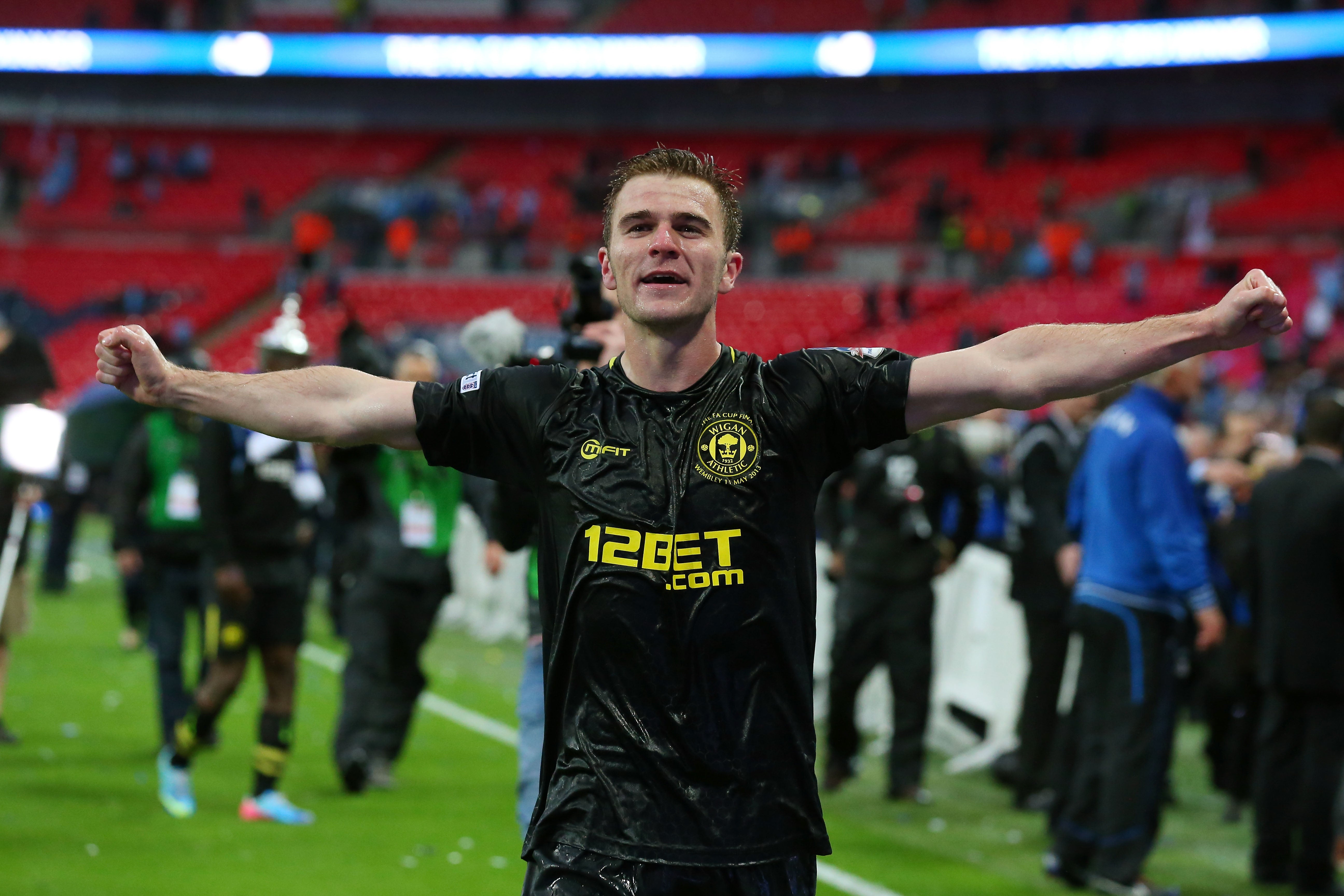
Callum McManaman was still living with his mum and dad. Callum McManaman was also man of the match in the FA Cup final. It is an odd juxtaposition to go with Wigan’s unique double in 2013, the FA Cup winners who were relegated in the same week. It is not the only unusual element to McManaman’s improbable tale: the footballer who stopped playing football, who was to all intents and purposes retired, faces Manchester United on Monday in the competition that propelled him to prominence.
It was a decade ago. “It feels like 20 years,” said McManaman. “It was surreal. It went from being no one knew who I was, still living in my mum and dad’s house. It was crazy, going from being basically a reserve-team player to playing in the Premier League and being man of the match in the FA Cup final.” It puts him in elite company: the others to receive the accolade in the 21st century reads like a who’s who of the footballing greats: from Steven Gerrard to Michael Owen, Thierry Henry to Alexis Sanchez, Wayne Rooney to Ruud van Nistelrooy, Didier Drogba to Frank Lampard, Kevin De Bruyne to Ilkay Gundogan.
Then there is McManaman, something of a throwback to the FA Cup’s era of unlikely heroes. His victims were Manchester City, Premier League champions the year before, furnished with modern greats, the beneficiaries of big spending. Wigan went to Wembley riven with injuries, with a makeshift look to their team, with a winger who had only made his first league start eight weeks earlier. But McManaman had scored in the quarter-final and the semi-final. He ran City ragged, his policy of running at them bringing two bookings for Pablo Zabaleta, who was unable to halt him any other way. He was still running in the 90th minute when he was the first to reach Ben Watson when the substitute headed Wigan’s winner. Newly turned 22, he was the unknown who was not intimidated by the occasion or the opposition.
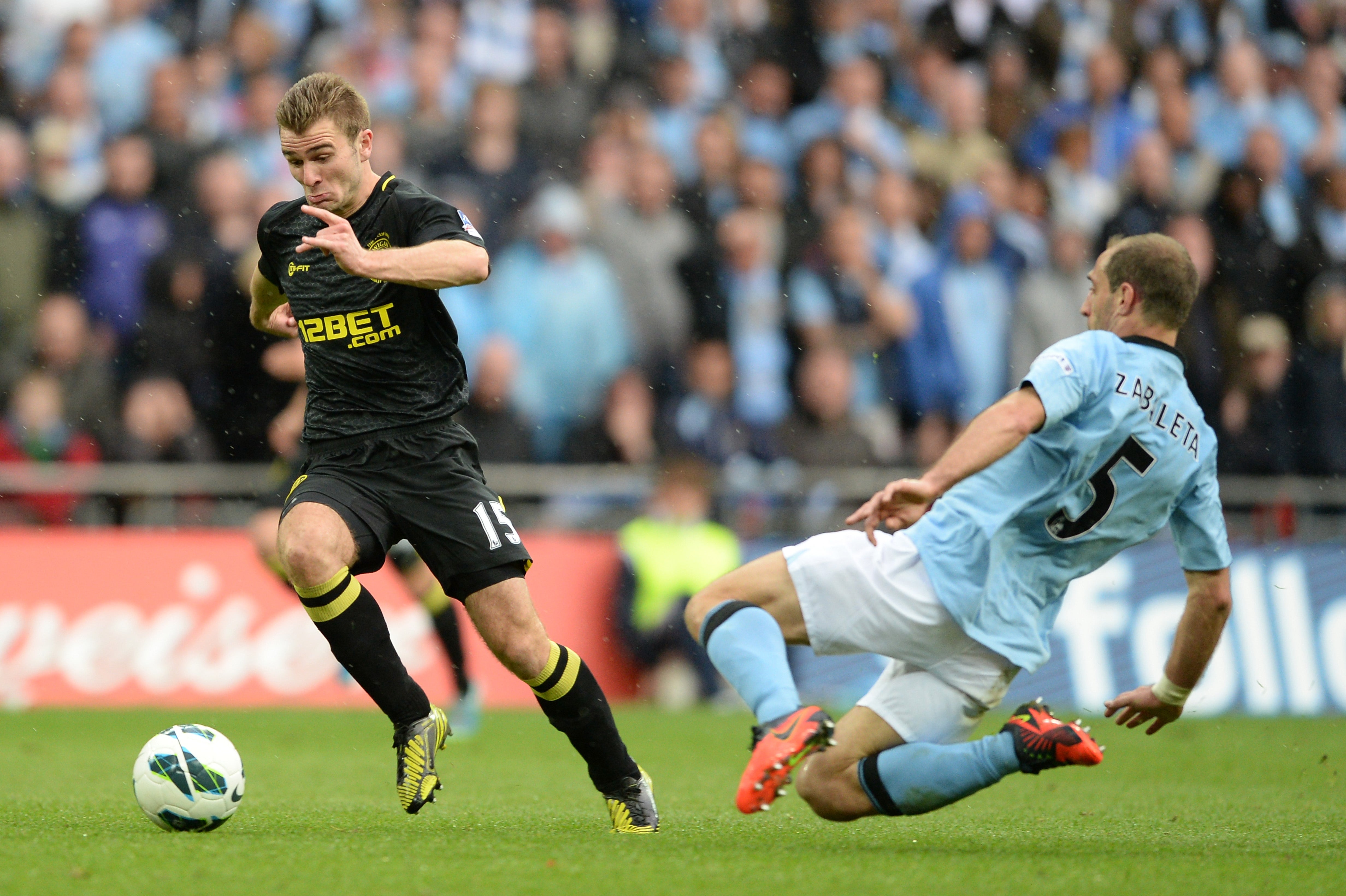
“It all happened so quick but I was just loving it,” he recalled. “I had no fear. I felt like whoever I played against, I was going to get the better of them: that was my mentality at the time.” Perhaps it took that fearlessness to confound the odds. The competition used to be a byword for shocks. Now 25 of the last 28 FA Cups have been won by the Manchester clubs, Liverpool, Arsenal or Chelsea. Portsmouth prevailed against Cardiff in 2008 in a final shorn of the usual favourites. Leicester won it in 2021. The other exception is Wigan. “In my opinion, the biggest upset in FA Cup history,” McManaman said. “It was unbelievable and we deserved it: it wasn’t lucky, it wasn’t fluky.”
The sight of Wigan today, 17th in League One, after starting the season with an eight-point deduction, rather underlines how implausible their triumph nevertheless was. Their subsequent decade has encompassed relegation, promotion and administration. Indeed, they went down three days after the final, a 4-1 defeat at Arsenal sealing their fate. McManaman got his only England Under-21 call-up in the morning and snapped his ankle ligaments at the Emirates Stadium in the evening, ruled out of the international squad as he was cast out of the top flight.
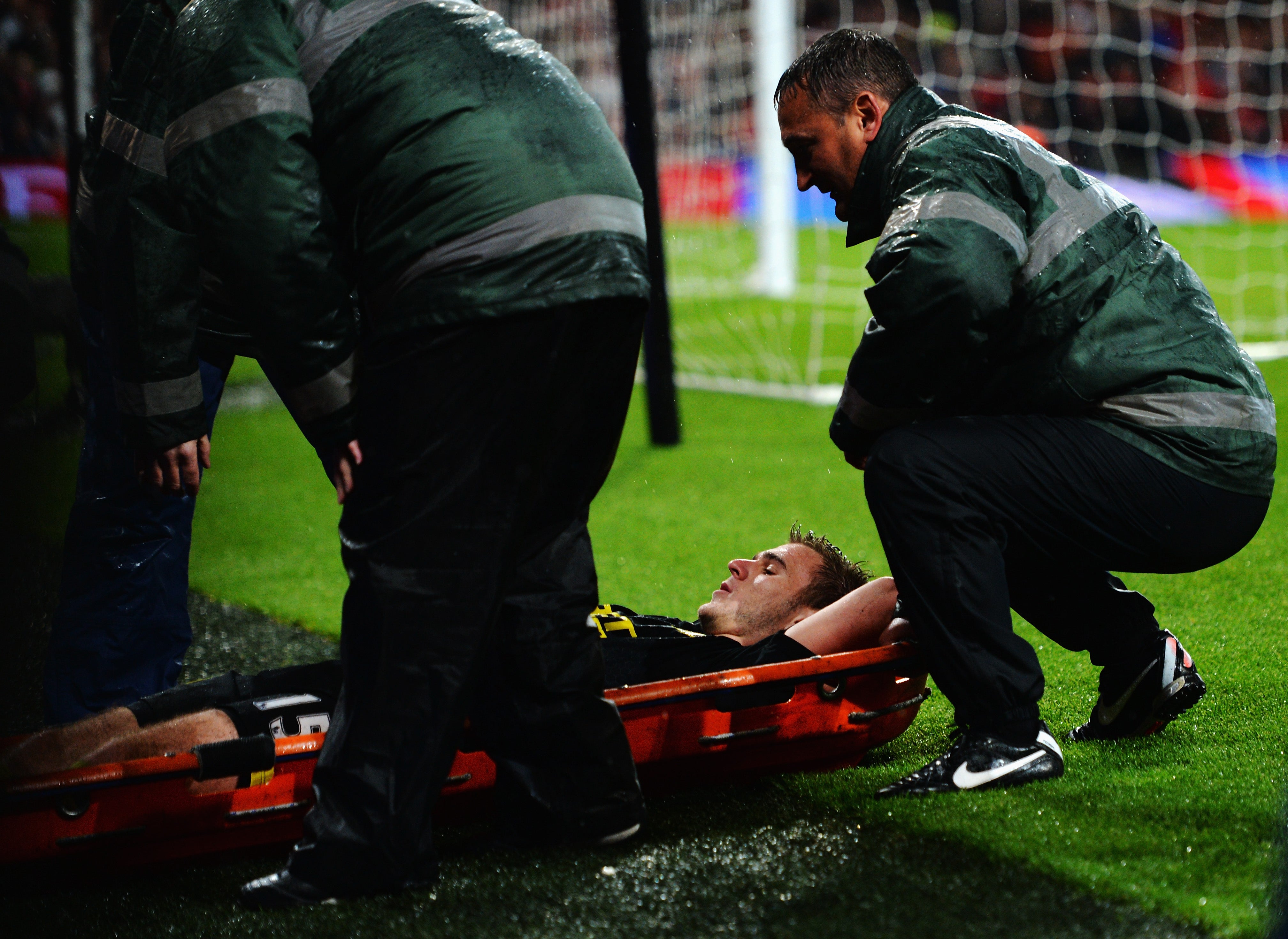
“It was bittersweet but I don’t think anyone would swap what we did to stay in the Premier League,” he said. “I would rather win the FA Cup, I think every Wiganer would agree. Those memories, that might never happen again.” The open-top bus parade Wigan had, following relegation but celebrating the FA Cup win, supports his theory.
Wigan have beaten City again in the FA Cup since then – as a League One side in 2018 – but not on such a grand stage. They returned to Wembley the season following the cup triumph, losing on penalties to Arsenal in the semi-final. A play-off defeat to QPR came at a greater cost. “I think we expected to come straight back up and it didn’t quite work out,” McManaman said. “The team quickly got split up, which was sad. It wasn’t nice, everyone was leaving and I wanted to stay but the longer it went on, it was crazy.”
He joined West Bromwich Albion in 2015 for £4.75m. It proved the start of a nomadic journey which took him to Sheffield Wednesday, Sunderland, Wigan again, Luton, Melbourne Victory, Tranmere and now a third spell at Wigan. He has never recaptured the highs of 2013.
“I did feel unstoppable at that point,” McManaman said. “I thought it was always going to be like that and I was always going to be able to do that against top teams and top players and it never turned out that way. I got a good move to West Brom, I went back to the Premier League, did OK for the first six months but then it didn’t really work out. It’s football. There are ups and downs, it’s not always plain sailing. I’ve had a good career. Could it have been better? Of course it could but a lot of people would say that. Nobody can take that day away from me.”
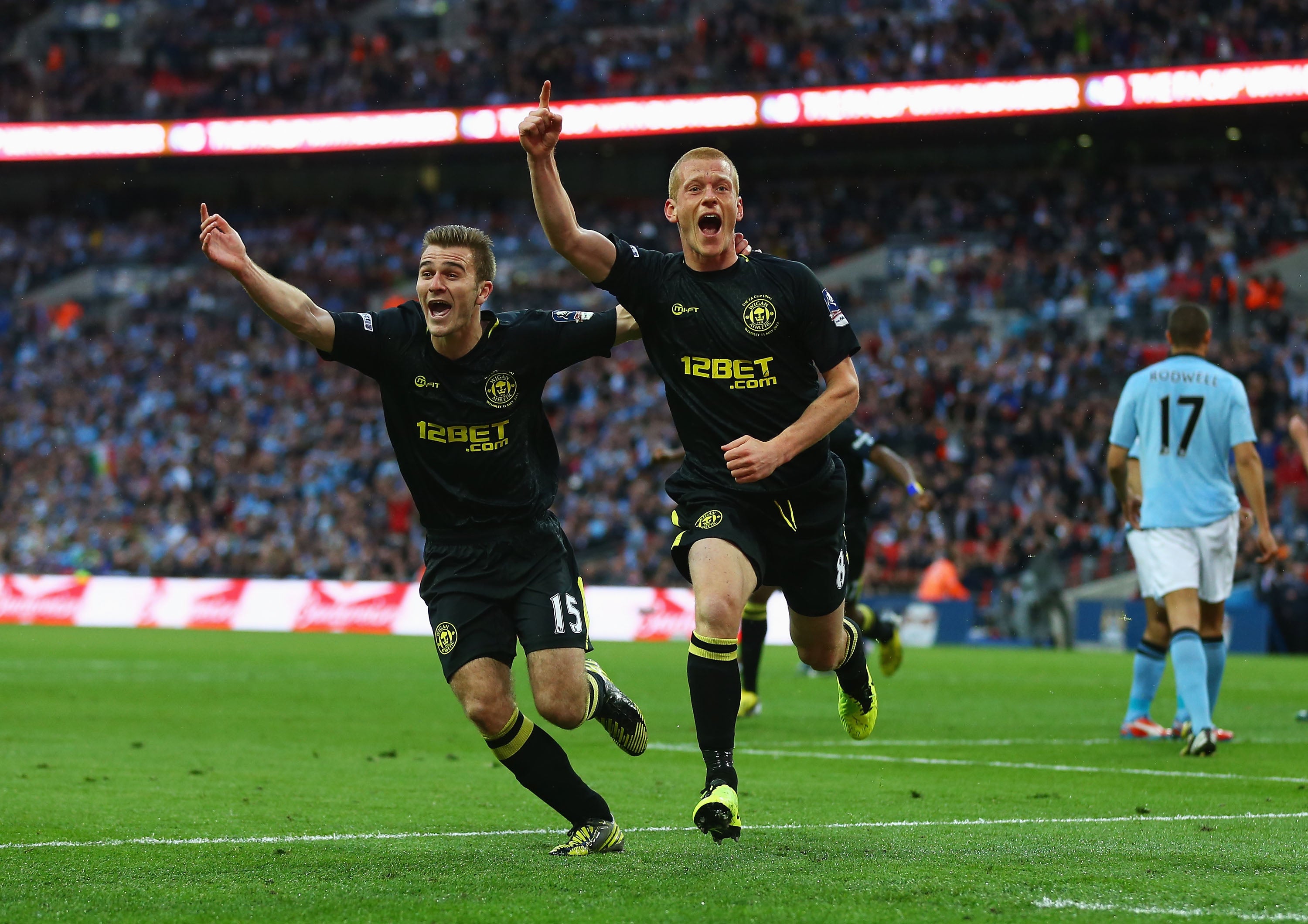
Another day illustrated how special it was. McManaman had drifted apart from his 2013 teammates until a fundraising event for Joseph’s Goal, the charity set up by the parents of Wigan’s FA Cup final mascot. “I didn’t really have any contact until in the summer we had a 10-year reunion,” McManaman said. “There was a charity game and so the majority of the players played in that, the night before we had a dinner at the stadium which was good. I think that will be a thing now every five or10 years.”
Yet one FA Cup winner had reached out before the reunion. McManaman was released by Tranmere in 2022. He spent months without a club, thinking it was all over. “I’d no plans. I’d just had enough of footy,” he said. “I was doing nothing. I wasn’t training. I was basically retired. I didn’t do anything. I didn’t really keep fit. I never kicked a ball for a year. I just tried to move on with my life but never did.”
In his own words, he was “bored”. Then he heard a familiar voice. “The manager rang,” he said. But the manager in question is Shaun Maloney, the other winger from the 2013 team, the man whose corner was headed in by Watson at Wembley. “I know a few managers rated me as a player but they didn’t phone me when I had a few months off,” McManaman said. “The gaffer did.” The Scot’s initial offer was simply to train with the reserves. That led to a one-season contract. McManaman has already made 30 appearances, adding experience to a youthful team, most of whom, he remarked wryly, “don’t have a clue” about his past.
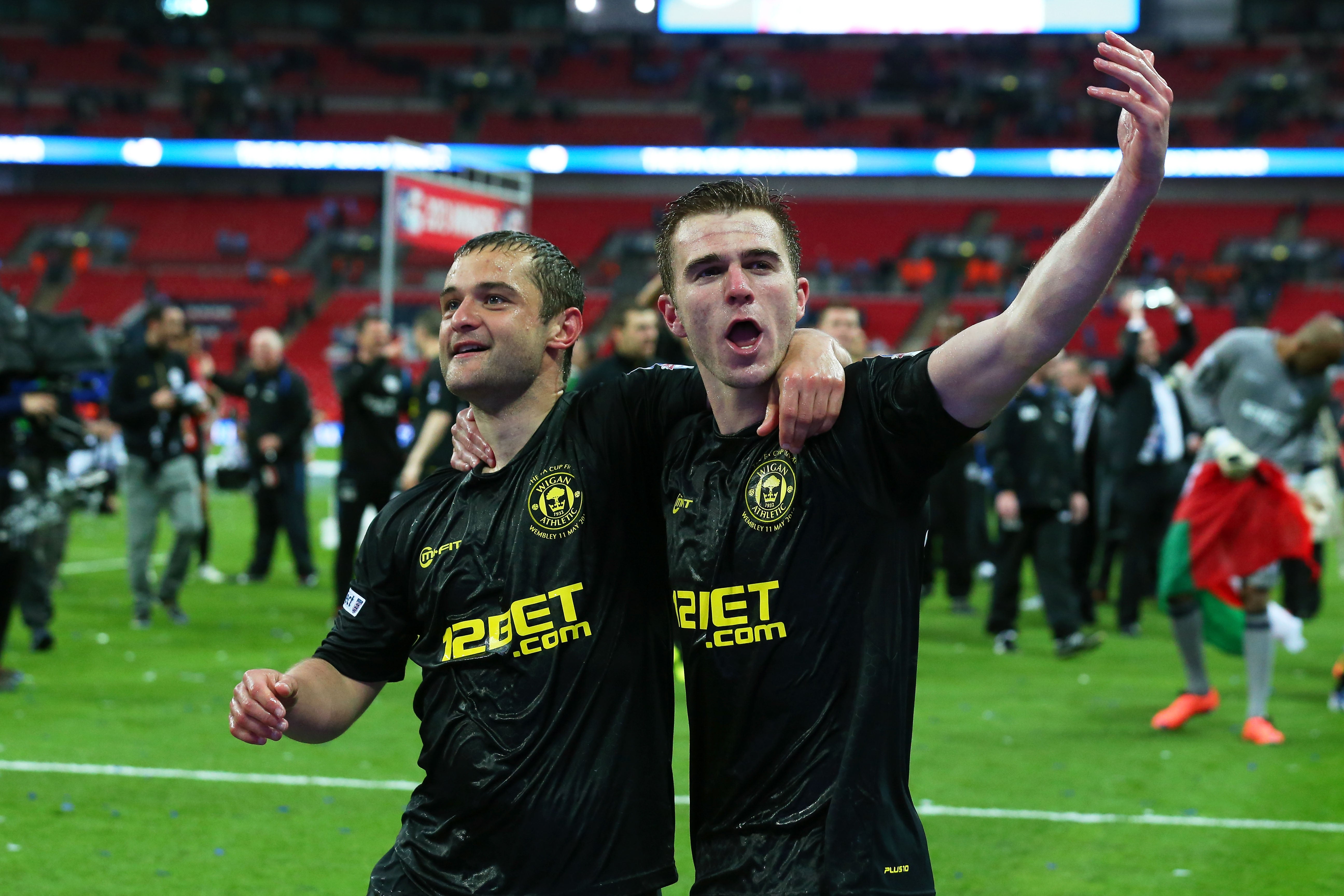
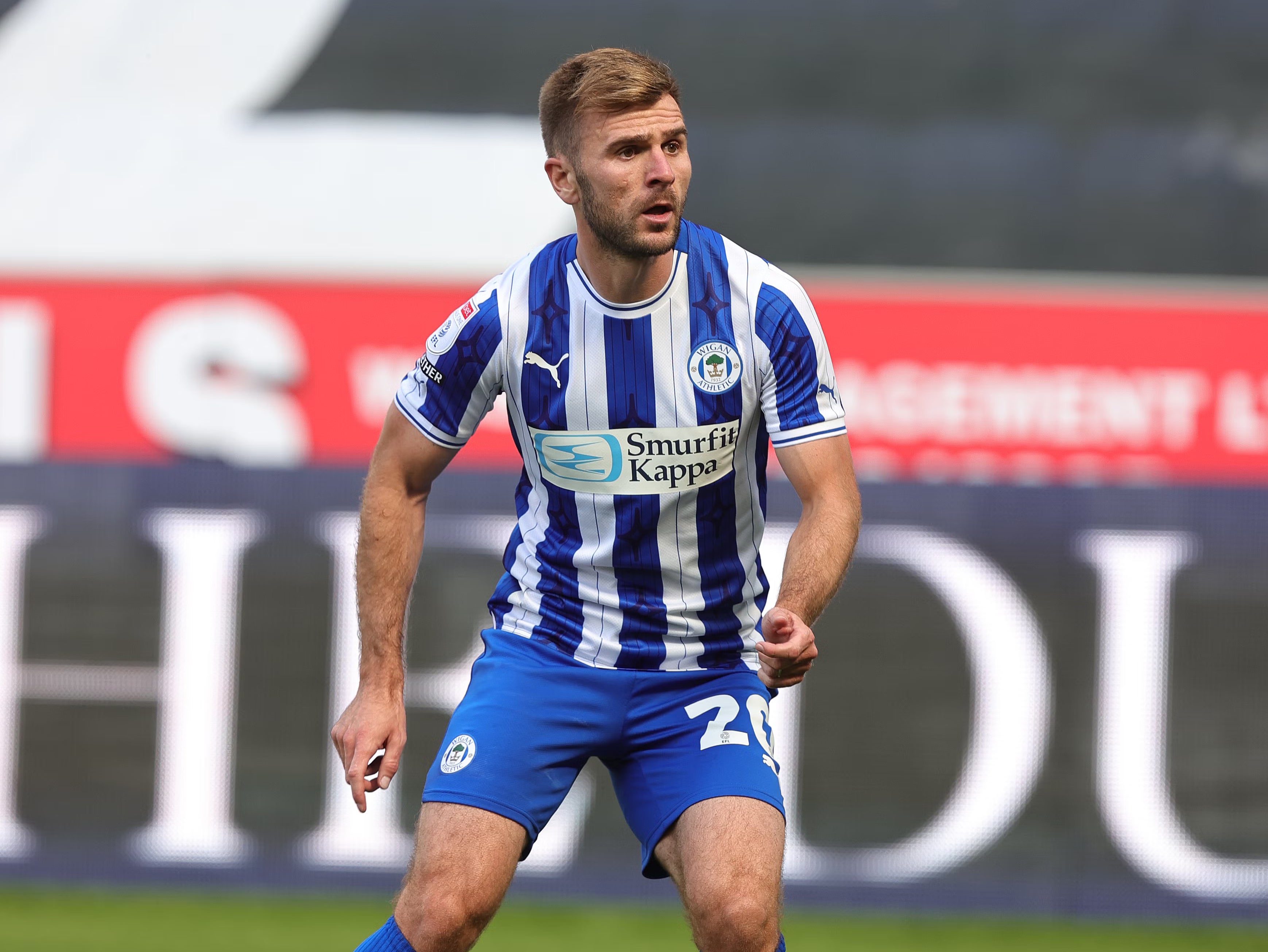
“I thought retiring would have been a lot better than it was,” McManaman said. “When I got back in, I ended up enjoying it 10 times more than before I finished. Having a year doing nothing, having a year out to come back and play at this level, I’d say that is one of my biggest achievements, if not my biggest. It ended up being a good story.”
Now Wigan’s giant-killer is eyeing another. “We have done City twice in the FA Cup so hopefully we do United,” he said. “The pressure is on them, there’s no pressure on us.” For the FA Cup winner who fell out of love with football, it is a return to relish. “To come back and to be playing against United is just mad,” he said. “I’m going to enjoy it.”
Join our commenting forum
Join thought-provoking conversations, follow other Independent readers and see their replies
Comments